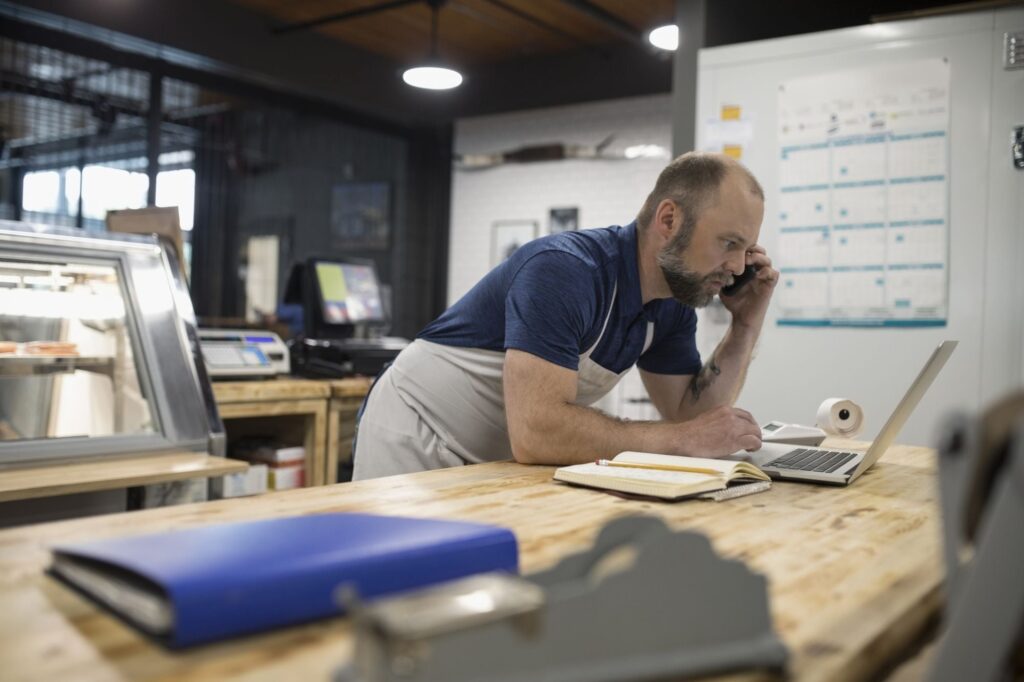Small businesses and entrepreneurial ventures face a tough time as they struggle to create a pandemic strategy that can help them to get businesses back on track in specific measures, even though not like what it was before the Covid19 pandemic. Meanwhile, the effects of social distancing restrictions and demand shifts due to the stress on health and economy have rendered many small businesses unviable that have downed shutters with the faintest hope of revival. But the change in demand and disruptions in supply chains are not the only reasons companies take a beating.
The blow on public health due to the coronavirus infection has caused significant health concerns for the workforce that is reluctant to return to work unless business owners can assure a safe work environment that seems a daunting task, observes Eric Dalius. Even if it is possible to create safe working spaces, little can business owners can soothe the mental and emotional distress that everyone is going through, affecting general health. The uncertainty about jobs and the economic future is shattering mental health as people find it tough to stay balanced.
Searching for survival strategies

Yet, some businesses are trying to stay afloat by allowing the staff to work from home. Still, it is not feasible for small companies to develop different strategies to cope with the crisis, hoping that good days are ahead as the news of vaccine development gains pace. A marketer par excellence, the time has come when we have become used to the new reality thrown upon us by the Covid19 pandemic. Now we must prepare to face a new business reality. Many small business owners who face an existential crisis struggle to ensure that their business comes through this global health crisis and regain its strength by adjusting to the new normal.
Too many impediments

The biggest challenge is implementing strict hygiene and safety measures to create safe workspaces by aligning it with the business strategies based on new operational methods that promote contactless or minimal contact business operations, especially at the delivery end. Technological solutions that can create virtual business environments might help modify the business model but matching it with the health needs can be challenging. Moreover, it is not practical for small businesses to switch over to the online mode depending on the type of business and its deliverables.
Businesses must develop strategies that serve the twin purpose of bolstering the business and mitigate the impacts of the pandemic to the greatest possible extent. You must spend some time on this to find what works best. The strategies discussed in this article, if appropriately implemented, should ensure that your business emerges stronger once the pandemic is over.
Physical and digital security is a priority

Small businesses that plan to open the stores must ensure complete compliance with the health and hygiene needs like maintaining physical distancing and practicing other hygiene protocols like sanitization both for the premises and individuals. Besides sensitizing the staff and workers about complying with the health standards at the workplace, business owners must provide adequate access to resources to workers and consumers so that they can follow the protocols. Practicing is now more important than preaching.
Businesses that choose to implement virtual platforms by closing the physical establishments must use robust technology to maintain virtual relationships with all stakeholders like partners, colleagues, vendors, and customers. Additionally, they must implement a full security system to protect the virtual platform from breaches as the risks of hacking and phishing are always relatively high. Scams in the disguise of sharing Covid19 information are already a matter of concern for businesses that operate online.
Reinvent your space

The strategies for coping with the pandemic will vary according to the industry, and business’s nature feels EJ Dalius. It requires a lot of introspection and innovation to transform the business model to suit the changing needs of health and hygiene. For example, some restaurants are devising contactless services both for takeout and in-person. Using technology, restaurants are creating a business model that will allow customers to order and get food without involving in any human interaction. As technology is expensive, small businesses can think about some other options to bring about the transformation in the model and the space in which they conduct business. Restaurants can create a takeaway window at the front of the establishment or place tables along the sidewalk on the outside, or use a part of the reserved parking lot for outdoor seating.
Arrange for curbside pickup

Retailers are taking to in-person service and curbside pickup, but customers might not feel much-interested thinking about how it will impact the aspect of social distancing. Encouraging electronic payments, especially the contact fewer ones, will attract customers while offering masks and sanitizers to customers by following strict distancing norms to regain customer confidence and increase footfalls.
You can even arrange for a virtual tour of your store for customers by using the Zoom platform and reorganize the store to facilitate easy viewing of the products that help in closer interaction and give a real-life feeling. Arranging a video chat with customers will help better share information and reduce the incidents of returned consignments.
Find growth opportunities

Although the primary goal is to revive the business by gaining customer confidence to start interacting with the company, you must be on the lookout for growth opportunities. One way could be by creating strategic alliances and entering into partnerships with integrators, resellers, distributors, and suppliers. Focus on your value proposition and try for acquisitions and partnerships that can have the most impact on business. Try to strengthen your existing contracts by infusing a new value proposition.
Keep the nightmare of the pandemic behind and move towards a new normal that has many positives for you to discover. How much advantage you can take of it depends on your innovativeness and attitude in embracing change.









